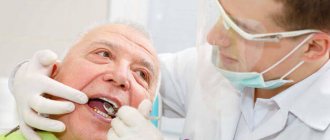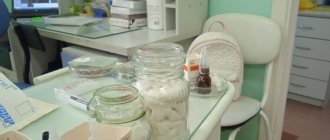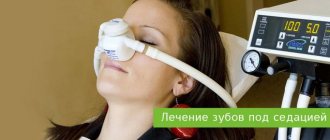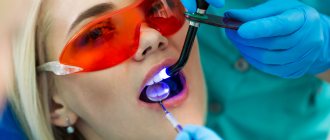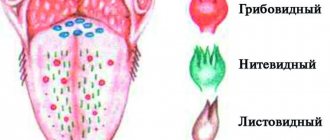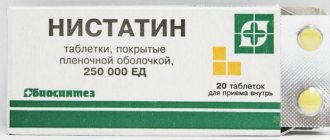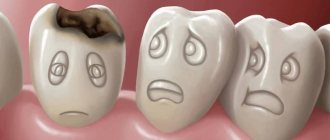Read in the article:
- How alcohol affects teeth
- Causes of toothache when drinking alcohol
- The dangers of drinking alcohol to relieve toothache
- How to relieve toothache after alcohol
It is not necessary to have thinned enamel to suffer from pain after drinking cognac, vodka or whiskey. Ethanol is a heavy poison and neurotoxin that undermines the immune system and affects the psycho-emotional state. Alcohol washes away calcium, which is part of the mineralized tissue of teeth. Because of this, people suffer from pain that is difficult to relieve with painkillers.
How does alcohol affect teeth?
There is a myth that vodka can disinfect the oral cavity and fight bacteria that cause caries or gum disease. In fact, the effect is the opposite - alcoholic drinks corrode the mucous membrane, which increases the likelihood of inflammation. Even low-alcohol cocktails wash away calcium in huge quantities, and dentin consists of it. Consequently, tissues suffer from a deficiency of this mineral and become brittle, which increases the likelihood of cracks and holes. As practice shows, alcoholics are 30% more likely to develop dental caries.
Teeth and gums also weaken because zinc, iron, phosphorus, and magnesium are additionally washed out. This causes bleeding gums. It is much worse that the soft tissues are destroyed, so the support of the teeth weakens. Increases the chance of falling out. Alcoholics face the problem of tooth loss in the third stage, when the body is in critical condition.
Fruit juices and nectars
According to data, most juices have a low pH
, so they are dangerous for teeth. For example,
- Orange juice pH is about 3.5
- Pineapple juice pH is about 3.5
- pH of grape juice is about 3.2
But apple juice’s pH value is in perfect order: 5.5.
Nectars, by the way, are even more dangerous than juices, since they contain a high sugar content, which is harmful to teeth without any “buts”. So if you still want to drink juice or nectar, dilute it with water by about half.
Causes of toothache when drinking alcohol
Alcoholic drinks affect the natural microflora of the oral cavity. Because of this, pathogenic bacteria spread, causing caries and gum damage. The sensitivity of tissues increases, so alcoholics cannot drink hot or cold drinks - pain immediately appears.
It is necessary to take into account the fact that alcoholic beverages contain acids. This includes wine, champagne, port, cognac, and cocktails. The acid burns the mucous membrane and thins the tooth enamel. Therefore, periodontal disease, caries, and erosion develop. The natural shade changes, the color becomes yellow-gray. If a person already has fillings, dentures, bridges or implants installed, they become fragile and wear out. Often, alcoholics' fillings fall out, which leads to critical consequences - pathogenic microflora leads to inflammation of the root, which subsequently causes tooth extraction.
It is much worse if a person has expensive implants and drinks strong drinks. The probability that the implant will fly out or will not take root is very high. In the future, the doctor is unlikely to be able to install a new implant. Therefore, after surgery you need to give up drinking 100%.
Dentists identify the following causes of acute pain after drinking strong drinks:
- Pulpitis.
- Hypothermia.
- Inflammation of the trigeminal nerve.
- Caries.
- Stress.
- Thinning of enamel.
- Angina pectoris.
- Root cyst.
If you experience any discomfort after eating, contact your dentist immediately.
Plain and sparkling water
There is nothing better than ordinary drinking water for your teeth.
. Its pH ranges from 6.5 to 8.5, at 25 degrees – 7. Probably the only danger that water can pose in terms of dental health is a sharp temperature change that occurs when after a hot drink (for example, espresso) you drink cold water. Don't do this and everything will be fine. Drink as much water as your body requires.
Sparkling water is another matter
. Its pH is on average 3-4, that is, it is a harmful drink for teeth. Here we are talking specifically about simple sparkling water, and not about the sweet soda that we discussed above.
The properties of natural mineral water depend entirely on its source. Information about the pH of a natural mineral water can often be found on its label. Often beneficial waters of this series have pronounced medicinal properties, are sold in pharmacies and are used for certain indicators.
Total...
- Drink water when you are thirsty.
- Drink coffee/tea if you need to warm up and cheer up.
- Drink milk and dairy products if you like them and your stomach does not protest against their consumption.
- Drink soda only through a straw and in moderation.
- Alcoholic drinks... Think about more global consequences than damage to your teeth when you drink them.
Attention! This article is not indexed by search engines, so you can take it and publish it in the article section of your clinic’s website. The one who does it first will get the SEO effect. You will find other similar materials in the collection “Tell the Patient”.
Would you like to see similar materials in the blog/article section of the clinic’s website? Contact us (contact form below), we can create exclusive educational articles for you that will attract new patients to your clinic and simply help people.
Find out more about
The dangers of drinking alcohol to relieve toothache
Often people want to save money on painkillers. They motivate this not only by savings, but also by safety. Supposedly, vodka is a pure product that does not contain dangerous chemicals. In fact, drinking alcohol before or after dental treatment only makes the situation worse. Firstly, the microflora deteriorates and the volume of pathogenic bacteria increases. Secondly, the enamel becomes thinner, which leads to cracks.
If you are planning a trip to the dentist, then drinking is prohibited. The reaction of anesthesia with alcohol is very strong, which can cause respiratory arrest or seizures. In this case, blood clotting is impaired, so there can be enormous blood loss and you will have to call an ambulance. It is much worse if the anesthesia does not work at all and the tooth is pulled out without pain relief. The terrible pain can cause a person to lose consciousness.
Tea
Tea, so popular among us, is fundamentally safe for teeth.
. Here you should remember that we are talking about the tea that you brew in the morning, and not about the drink in a plastic bottle called “ice tea”, “ice tea”, “iced tea”, etc.
According to this material, green tea has the highest pH level
, it is slightly lower for chamomile and mint teas. The pH level of black tea is from 4.9 to 5.5. But hibiscus has a very low pH level, about 2.5, which means this tea is unsafe for teeth.
Bottled “iced” teas are drinks in the same range as a variety of colas. Their pH ranges on average from 2.5 to 3.5. In addition, they are loaded with sugar beyond measure, which makes such drinks real enemies of the teeth.
How to relieve toothache after alcohol?
Visit your dentist right away to have your mouth examined and take photographs to evaluate the condition of the roots. No folk methods will help solve the problem, much less another glass of vodka. It is important to deal with the root cause. If after complex treatment a person does not stop drinking, there will be serious consequences.
You will get rid of alcoholism 100% anonymously. Inpatient and outpatient treatment programs have been developed, including:
- Detoxification – removing toxins from the body, replenishing mineral/vitamin deficiencies, restoring water-salt balance.
- Medical and social rehabilitation - work in groups, drug therapy, visits to a psychologist.
- Social and psychological rehabilitation.
- Social adaptation.
You can get a free consultation and make an appointment with a narcologist by calling 8.
Antibiotics are prescribed, which means alcohol is prohibited
When implanting teeth, antibiotics are often prescribed (if teeth were removed before installing implants, there was pronounced periodontitis and periodontal disease). But antibiotics and alcohol are not compatible - not only your attending physician will tell you this, it is also written in the instructions for almost all drugs. The consequences can be both relatively harmless (the medicine simply will not work) or very sad - even death. Alcohol is prohibited during the entire period of taking antibiotics, as well as for at least 4 days after.
Yes, not all antibiotics cannot be combined with alcohol. But most of them. Among the unpleasant consequences are palpitations, nausea, vomiting, increased blood pressure and general intoxication of the body.
More details about the symptoms of a hangover - how do they manifest themselves and what causes them?
Everything that a person experiences with a hangover is a subjective unpleasant sensation. The most common symptoms of a hangover include:
- Throbbing, pounding, severe headache.
- Tachycardia and arrhythmias.
- Tremors of the hands and whole body. Patients often complain that they are shaking after drinking.
- Heartburn, dry mouth and severe thirst, the so-called dry mouth.
- A sharp reaction to extraneous stimuli - increased sensitivity to any loud sound, noise and light, causing a surge in severe headaches
- Redness of the sclera of the eyes.
- “Adrenaline melancholy” is a complex of depressive phenomena associated with a feeling of guilt for past drinking and one’s behavior.
All these manifestations, as I said earlier, are associated with acetaldehyde poisoning. The kinetics of its effect on the body is quite complex and not fully understood. It is believed that acetaldehyde, when interacting with the hormones dopamine and norepinephrine, forms tetrahydroisocholines, and carbonyls with the amino acid tryptophan. All these metabolic products of acetaldehyde have a psychotropic effect with an effect on motor activity and convulsive readiness of the body. This is why convulsions after alcohol and even epileptic seizures are possible.
The development of hangover symptoms is not influenced by the type of alcohol, although some experts believe that strong alcohol is less likely to lead to a hangover than low-alcohol drinks, cocktails, and sweet alcohol. Basically, the occurrence of a hangover in a healthy person is observed when the risk dose is exceeded - 1 g of pure ethanol per 1 kg of body weight.
In addition, the diuretic effect of ethanol leads to increased urination and disturbances in the electrolyte composition of the blood. It also causes and increases inflammation of the intestines, pancreas, stomach, liver and kidneys. Nausea and vomiting during a hangover are associated with the inflammatory reaction in the gastrointestinal tract.
How severe can alcohol poisoning be?
It all depends on the severity of the poisoning. Depending on the ethyl alcohol content, the following degrees of alcohol poisoning are differentiated:
- A mild degree that occurs when the concentration of ethanol in the blood is no more than 1 ‰ (ppm is 1 thousandth of something or 1 tenth of a percent (‰ = 1⁄1000 = 0.1% = 0.001). This degree of intoxication is accompanied by moderate disturbances of autonomic function in in the form of facial flushing, increased breathing, tachycardia, as well as fine motor disorders.These manifestations do not require special medical intervention and go away on their own after a few hours of sleep.
- The average degree is observed at an alcohol concentration of 1 to 2.5 ‰. With a hangover, nausea, vomiting, pallor or cyanosis of the skin, severe shortness of breath and tachycardia, and possible arrhythmia often develop. In this condition, urgent detoxification is required by a drug treatment team called to the home. Hospitalization for moderate alcohol poisoning is not provided.
- Severe degree - ethanol content exceeds 2.5‰, sometimes reaching very high levels requiring resuscitation measures. Accompanied by depression of consciousness, misunderstanding of speech, change in skin color, vomiting, salivation (hypersalivation) and even coma. Convulsions, epileptic seizures, respiratory and cardiovascular disorders that are life-threatening may occur.
The state of severe intoxication can only be relieved in a hospital setting.

